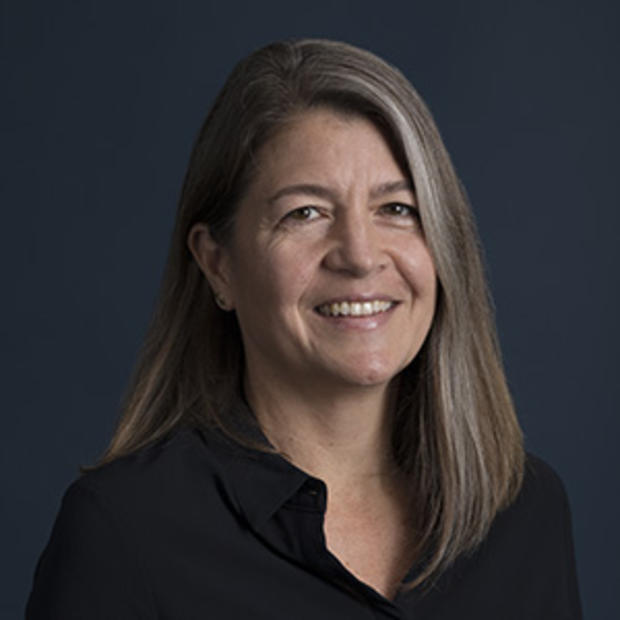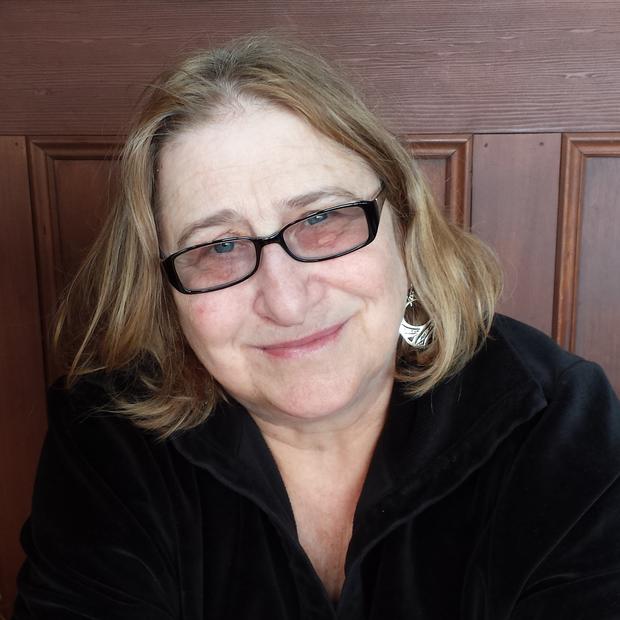Mrs. Krishnan’s Party
Do you like Indian food? Do you like actors engaging you in conversation? If the answer is yes, you may want to accept an invitation to this party/theater piece, an interactive affair concocted by the India Ink Theatre Company of New Zealand. The creators of this touring show, which comes to the Erickson Theatre this month courtesy of Seattle Theatre Group, describe it as “a love story set in a corner shop.” That shop is a convenience store managed by Mrs. Krishnan (Kalyani Nagarajan), a hearty South Indian immigrant to New Zealand, and her ebullient college student tenant, James (Justin Rogers). The “surprise” bash James throws (complete with decorations, dahl, dance and descriptions of Southern Indian mythology) is in honor of the Hindu festival of Onam, an autumn holiday celebrated by the Malayali people of Kerala, India. There’s a story line here (will the widowed Mrs. Krishnan sell her business and return to India?). But according to the enthusiastic reviews from Auckland and Vancouver, B.C., critics, the main attractions are the condensed (75-minute) immersion into Anglo-Indian culture and the witty, improvisational kibitzing of the performers with the partygoers (that's you). If you linger after the show, you get to sample the dahl (Indian lentil stew). –M.B.
If you go: Mrs. Krishnan's Party at Erickson Theatre, Nov. 15-24. (Tickets start at $45)

Azure Savage: You Failed Us
In Seattle, significant disparities persist between students of different racial backgrounds, and schools are struggling to close the opportunity gap. In You Failed Us: Students of Color Talk Seattle Schools, Garfield High School student Azure Savage explores what it’s really like for students of color in Seattle schools. Part memoir, part collected oral history of roughly 40 other school-aged youth in the Seattle area, You Failed Us explores issues of race, gender identity, mental health and structural barriers from the perspective of those who live in it daily. Savage, who is queer, trans, and Black (and uses gender-neutral pronouns), will talk about their book and experiences with Marcus Harrison Green, Crosscut’s newest contributing opinion writer, journalist and South Seattle Emerald founder. Do your homework first by reading Crosscut reporter Liz Brazile’s story about Savage and their book here. –M.V.S.
If you go: Azure Savage: You Failed Us, Elliott Bay Book Company, Nov. 14, 7 p.m. (Free)
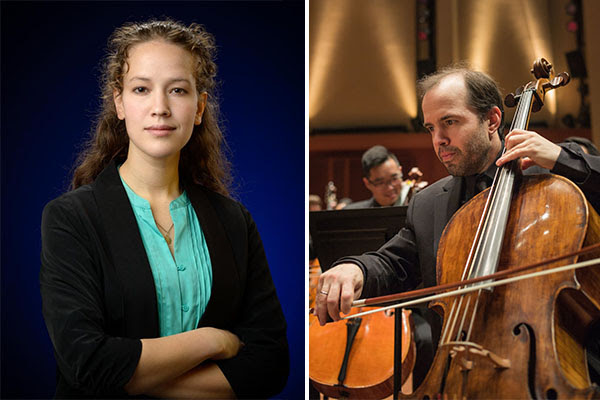
Seattle Symphony: World premiere concerto by Angelique Poteat
Pacific Northwest composer Angelique Poteat started young. At age 8, she began writing baroque-flavored songs on a Casio keyboard. In high school, she was invited to join the Seattle Symphony’s Young Composer’s workshop. Now in her mid-30s, she’s premiering a new cello concerto on an impressive mixed-bill, alongside works by Benjamin Britten and a fellow named Rachmaninov. Her piece was inspired by a variety of crimes against culture. “I don’t get my head out of work that often,” she told me by phone, “but when I do, I often discover terrible things have been happening.” In this case, it was the destruction of artifacts by ISIS/ISIL, combined with a recent upsurge in hate crimes in the U.S. In response, she wanted to create a piece that set artistic expression against oppressive forces. “I wanted the soloist to be a hero,” Poteat said. “Not like a superhero, but an ideology of free will and open-mindedness that promote acceptance and tolerance.” So how does this sound musically? Poteat says listen for the solo cello representing individualism, in conflict with the orchestra’s low-pitched rigidity. It’s up to the audience to decide whether the struggle ever resolves. -B.D.
If you go: Seattle Symphony at Benaroya Hall, Nov. 14-16 ($24-$134)
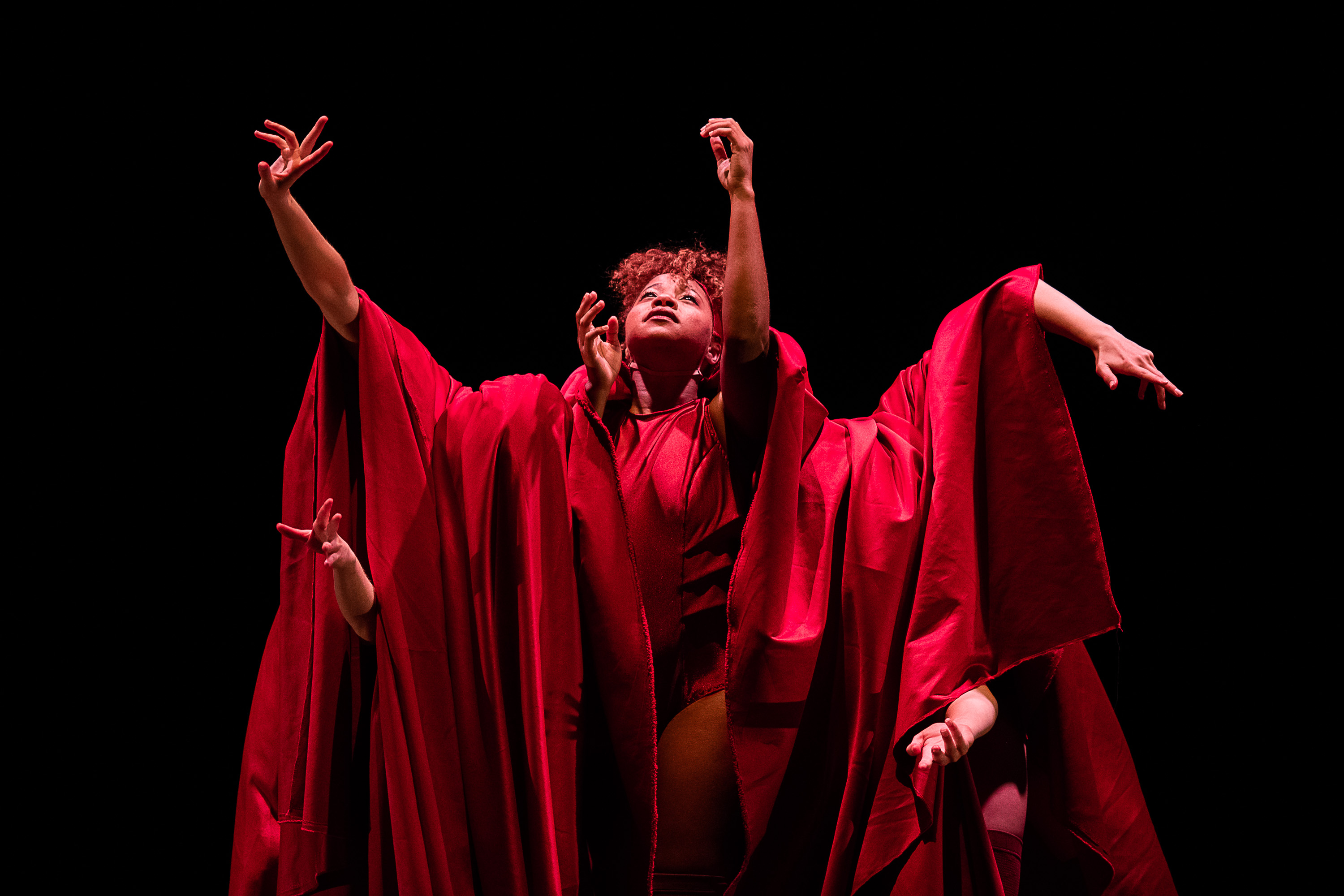
Pilobolus: Come to Your Senses
As if steered by a giant breath of wind, the dancers undulate as one, like leaves on a branch. Back and forth, back and forth. Dressed in flesh tones, they populate the scene like spores, later lifted tree-branch high in the sky. “Branches,” a poetic take on nature’s Darwinian forces, is renowned Dartmouth dance company Pilobolus — named after a barnyard fungus — at its finest. The piece is one of five (plus three videos) that the company will present during its evening-length show Come to Your Senses. Expect everything from a wacky exploration of the human eye (featuring dancers with eyeballs for heads) to an intense exploration of male intimacy and symbiosis, to a brand-new piece made with San Francisco-based indie rock singer-songwriter Thao Nguyen, host of the podcast Song Exploder. Bonus: The University of Washington Chamber Singers will perform the score live. –M.V.S.
If you go: Pilobolus: Come to Your Senses, Meany Center for the Performing Arts, Nov. 14-16, times vary. (Tickets start at $61)

The Falling and the Rising
The “theater of war” refers to the battleground — and the drama, action and tragedy, sometimes choreographed, that happen therein. Here on the heels of Veteran’s Day, the expression also refers to a new chamber opera making its local debut at Seattle Opera. Originally produced in Texas, The Falling and the Rising is based on true stories from returning U.S. soldiers, and features both trained opera singers (outfitted in uniform) and a chorus of local veterans. The plot surrounds a soldier wounded by a roadside IED. While unconscious, she takes the audience on a dreamlike journey that includes encounters with other service members who tell stories of service, sacrifice and homecoming taken from actual interviews. For the Seattle debut of this “soldier’s opera,” Seattle Opera worked with local nonprofit Path with Art to assemble the amateur choir of local military veterans, some of whom are recovering from homelessness and other trauma. Though familiar with the theater of war, they will be making their opera stage debut. –B.D.
If you go: Seattle Opera, Nov. 15-24, $45, military discount: $35

Puget Sound Writers Reading
Time for some hometown literary pride as a plethora of prominent Pacific Northwest authors read from their latest releases this week. Timothy Egan (The Immortal Irishman) has a new memoir, A Pilgrimage to Eternity: From Canterbury to Rome in Search of a Faith, in which the lapsed Catholic searches for answers along an ancient trek from Canterbury to Rome (read our story). In his gripping new book, The Russian Job, historian Douglas Smith illuminates a rarely told episode of Russian-U.S. relations — when Lenin asked the American Relief Administration to help feed 10 million starving Soviets, some of whom had resorted to cannibalism. And writer Ted Chiang, whose work Joyce Carol Oates has termed “literary-humanist science fiction,” reads from his collection of short stories, Exhalation, which President Obama included in his 2019 summer reading list. –B.D.
If you go: Douglas Smith at Town Hall Seattle, Nov. 14, 7:30 p.m. ($5); Timothy Egan at Hugo House "Novel Nights" series, Nov. 15, 7 p.m. ($200 includes food/drink); Ted Chiang at Hugo House "Novel Nights" series, Nov. 16, 7 p.m. ($200 includes food/drink)
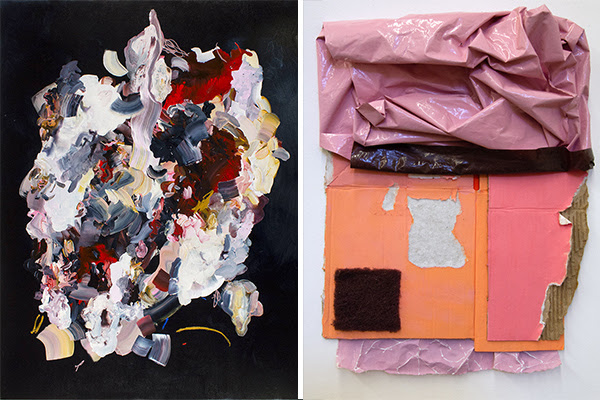
Three Expert Colorists
During these dark days of November, doctors recommend a healing dose of color — especially as administered by one of the masters currently on view. Studio E Gallery in Georgetown is currently electrified by the color-genius of Seattle artist Gillian Theobald (through Nov. 16). Her new show And the Language Was Beauty features landscape paintings in which the hypersaturated trees seem to be experiencing a psychedelic trip. These are perfectly paired with a framed groupings of discarded packing materials, which Theobald carefully folds or unfolds and paints with inexplicably delightful hues. At Foster/White Gallery (through Nov. 23), Ontario-based artist Janna White presents Seven Perfect Syllables, a collection of mixed media paintings marked by thick smears and glops of entangled vivid tones. There’s an implied deliciousness to the texture, which makes you want to lick the canvas (please don’t) to discover whether they'll reveal as many flavors as an Everlasting Gobstopper. And at Winston Wachter Gallery (through Dec. 21), local painter Susan Dory presents Exotic Mass. These new large-scale paintings are dominated by thick graphic slabs stacked like geologic shelves, but instead of the browns and grays of sediment, we’re treated to a bright bouquet of pastel and jewel tones. Visit all three and emerge refreshed, renewed and girded for the gray. –B.D.
If you go: See links embedded above for details (all shows free).

We Are Puget Sound
The Puget Sound is the southern portion of the international ecosystem known as the Salish Sea — and it is suffering. The orca population is critically under threat, chemicals from treatment plants are being discharged into the waters, and ocean acidification and climate change only compound the troubles. We Are Puget Sound: Discovering and Recovering the Salish Sea, is a new book and public awareness campaign aimed at increasing engagement around saving our local waters. A combined effort the Washington Environmental Council and Braided River (part of Mountaineers Books) the book and website trace the history, marine and terrestrial wildlife, as well as regional economies of fishing and agriculture, in words and images. Offering simple action steps, the project hopes to fuel rediscovery — and recovery — of the region’s waters. Book contributors Leonard Forsman (Suquamish tribal chairman), Les Purce (co-chair of Governor Inslee's Orca Recovery Task Force) and Mindy Roberts (director of Washington Environmental Council's People for Puget Sound) will speak at Town Hall Seattle about how we can all help protect “our common home in the Salish Sea.” –M.V.S.
If you go: We Are Puget Sound, Town Hall November 19, 7.30 pm ($5)

Can Do Attitude: A Custom Spray Can Group Show
Calling all lovers of puns and street art: a new show at Pioneer Square skate/snowboard shop and art gallery Statix will make your dreams come true. In a whimsical new art show titled Can Do Attitude, Statix displays spray-painted and artistically altered … spray-paint cans. Come for the cans adorned with spray-painted skulls, mischievous comic characters, intricate geographic patterns and realistically painted Royal Flycatcher, Brazilian Ruby and Saffron Toucanet birds, linger over Skylar Fleming’s porcelain-glazed canisters meant to look like antique china (replete with flower bouquets and gold details) — and stay for the cans made to look like lipstick-stained cigarette butts and smoldering smokes, made by artists from across the country. Just because they can. –M.V.S.
If you go: Can Do Attitude, Statix, through December 2 (Free)
Get the latest in local arts and culture
This weekly newsletter brings arts news and cultural events straight to your inbox.






